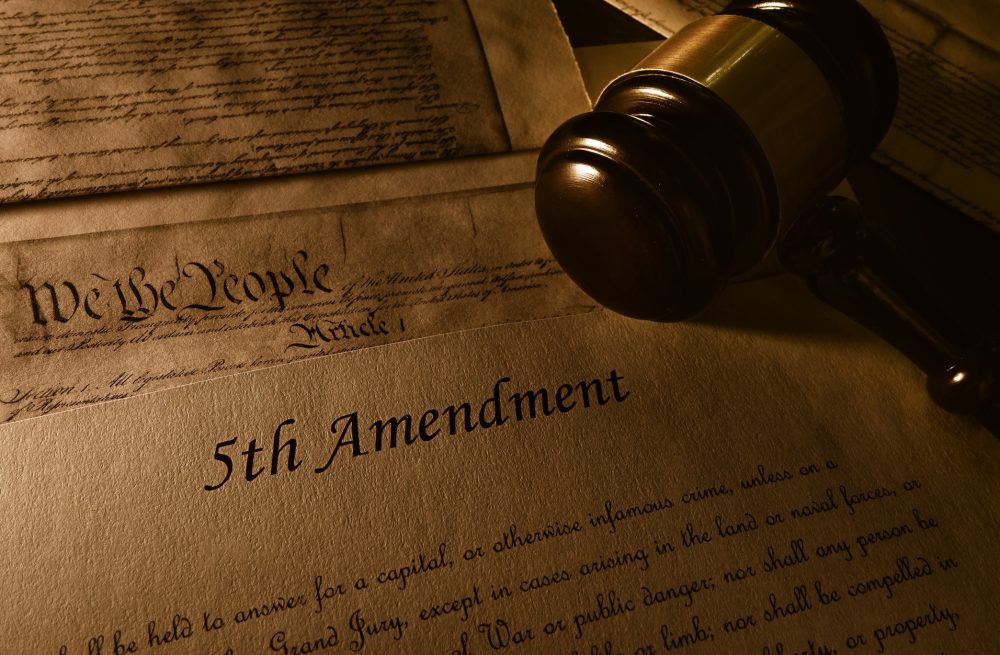The New Jersey Appellate Court recently held that Fifth Amendment protections might not extend to debtors that refuse to comply with discovery requests, including questions regarding their loan obligation and requests for documentation.
Rajendra and Jyoti Kankariya (“Defendants”) own Lotus Exim International (“LEI”) which is a marble and granite wholesaler. Defendants took out a $17 million loan from Provident Bank (“Provident”) on behalf of LEI. They secured the loan by executing personal guarantees, meaning Defendants promised to accept personal responsibility for LEI’s debt obligation if the company was unable to pay the loan back. Defendants submitted their financial statements which asserted that they owned a $1.2 million home, $700,000 of securities, life insurance policies for $160,000 and $90,000 in personal property.
LEI defaulted shortly after obtaining the loan. The company filed for bankruptcy. Provident sued Defendants on the personal guarantee, but Defendants did not respond. Final judgment was entered against Defendants as a result. Provident filed a verified petition for discovery, which included several questions and document requests directed to Defendants, in order to collect repayment on the judgment. Defendants refused to comply and asserted their Fifth Amendment privilege in response to almost all of Provident’s questions and document requests.
Fifth Amendment privilege protects people from incriminating themselves by limiting the power to compel their testimony. However, the privilege can only be asserted when an individual reasonably believes that the information could be used in or lead to criminal prosecution. Provident argued that Defendants failed to demonstrate a link between the asserted privilege and the potential for criminal prosecution. Defendants claimed that their fear of criminal prosecution is due to an allegation made during LEI’s bankruptcy proceeding in which Provident stated that they obtained the loan fraudulently.
In New Jersey, the test to determine if the Fifth Amendment privilege applies is whether “there is reasonable ground to apprehend danger to the witness from his [or her] being compelled to answer.” The “danger” must be “real and appreciable,” and not merely “remote and speculative.” The judge has to go through each question and document request individually to determine whether or not that privilege would apply.
Here, the Court held that Defendants did not have a “blanket right” to refuse to respond to all of Provident’s requests. They upheld the trial court’s order for a Fifth Amendment hearing. During that hearing, the trial court will review the questions individually and determine whether Defendants have a reasonable basis to assert their Fifth Amendment privilege. Additionally, the Appellate Court held that Defendants must produce all requested documents for the trial court to review, to be considered individually and in the same manner as their testimonial privilege claim.
If a debtor refuses to comply with discovery questions or document requests by asserting their Fifth Amendment privilege, a creditor may still prevail on its claim. Based on the holding in the case, the court will review each question and document request individually in order to confirm whether or not the privilege assertion is reasonable. If you are seeking to enforce loan repayment against a debtor or if you have any other legal questions, please contact Ward, Shindle & Hall for a free consultation.

